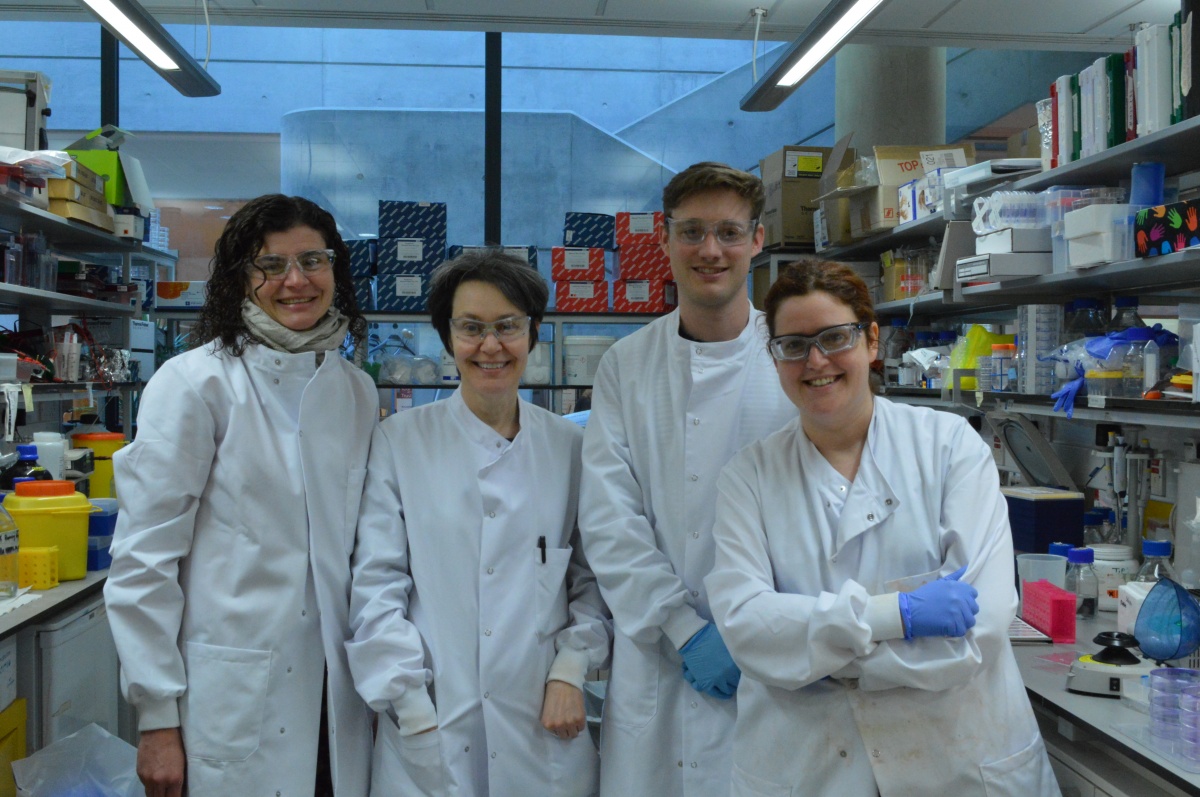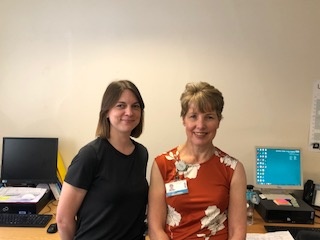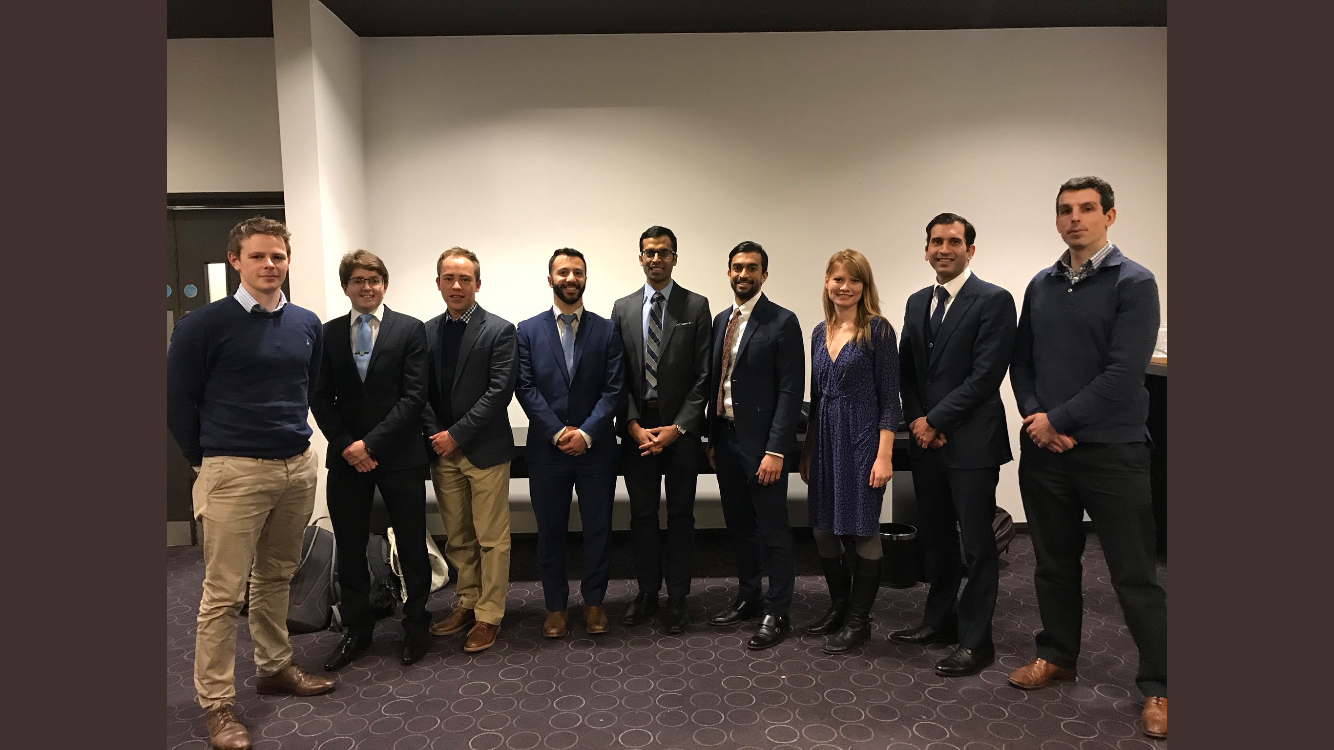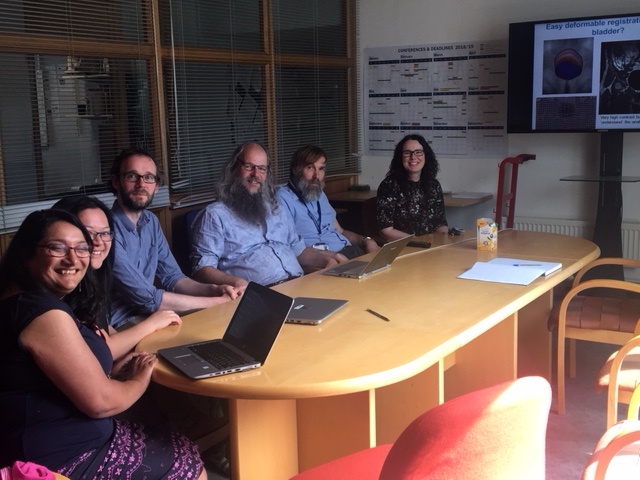Applications to the second round of ABC UK's annual small grants programme, dedicated to improving outcomes for those with bladder cancer, were very varied in areas of interest and of high quality.
We are delighted to award four grants this year and have profiled each of these successful applications below. These projects have the potential to impact on diagnosis, improving the effectiveness of treatment by developing targeted strategies and improving the patient experience.
PROJECT: Assessment of proteomic biomarkers in formalin-fixed paraffin embedded bladder tumours
Project Leads: Professor Anne Kiltie and Dr Judith Nicholson - University of Oxford
 Professor Kiltie, Clinician Scientist specialising in radiotherapy and chemoradiation treatments for bladder cancer - based at the University of Oxford in the CRUK/MRC Oxford Institute for Radiation Oncology and Honorary Consultant Clinical Oncologist, Oxford University NHS Foundation Trust. Dr Judith Nicholson, PhD, Postdoctoral Research Fellow
Professor Kiltie, Clinician Scientist specialising in radiotherapy and chemoradiation treatments for bladder cancer - based at the University of Oxford in the CRUK/MRC Oxford Institute for Radiation Oncology and Honorary Consultant Clinical Oncologist, Oxford University NHS Foundation Trust. Dr Judith Nicholson, PhD, Postdoctoral Research Fellow
Many bladder cancer patients are elderly and cannot tolerate surgical removal of their bladder (cystectomy) or chemoradiotherapy. New, less toxic, treatments to combine with radiotherapy in older people are urgently needed, and histone deacetylase (HDAC) inhibitors are promising. This team will try a new technique of studying histone modifications such as HDAC that was recently reported in breast cancer. If successful this could be used in bladder cancer for patient benefit.
As not all old people will benefit from the combination treatment over radiotherapy alone, there is an urgent need to identify biomarkers before treatment which can predict which patients need it. It is often difficult to routinely obtain fresh tumour tissue from bladder cancer patients who will receive radiotherapy. However, all patients have formalin-fixed paraffin-embedded (FFPE) tissue which is taken for diagnostic purposes at tumour resection (TURBT) prior to radiotherapy, which is very valuable for biomarker work.
ABC UK's IOPP grant will enable the project to set up a National Virtual Biobank of FFPE tissue and clinical data from patients receiving radiotherapy or chemoradiotherapy for bladder cancer, so that tissue can be used for biomarker work, it is expected the Biobank will have 300-400 samples available per year. This pump priming project will enable the development of future work to investigate the histone modifications as potential predictive markers of outcome in in vitro, preclinical and patient biobank sample studies.
PROJECT: Nurse-Led Cystectomy Follow Up Clinic
Project Leads: Hilary Baker, Macmillan Lead CNS for Uro-oncology, University College London Hospitals and
Jacqui Duncan, Macmillan Bladder CNS, University College London Hospitals
 The project has been designed around patient feedback following their cystectomy. Bladder cancer patients requested that they did not wish to go into a generic Urology follow up clinic but instead be seen in a Urology clinic specifically for cystectomy patients, where they would receive better specialist care and a more holistic consultation. The UCLH Cystectomy Healthcare Professional team listened to these valuable comments and decided to initiate a specific post cystectomy clinic, which would be nurse-led. Patients would be followed up for a year at UCLH and then if they are well and in remission of their disease be repatriated to their referring hospital. The aim of the clinic is to provide a specialist all-inclusive clinic for patients and their family.
The project has been designed around patient feedback following their cystectomy. Bladder cancer patients requested that they did not wish to go into a generic Urology follow up clinic but instead be seen in a Urology clinic specifically for cystectomy patients, where they would receive better specialist care and a more holistic consultation. The UCLH Cystectomy Healthcare Professional team listened to these valuable comments and decided to initiate a specific post cystectomy clinic, which would be nurse-led. Patients would be followed up for a year at UCLH and then if they are well and in remission of their disease be repatriated to their referring hospital. The aim of the clinic is to provide a specialist all-inclusive clinic for patients and their family.
Funding from ABC UK's IOPP grant will support this valuable project, which will impact on the patient experience and has the potential for adoption of this practice at other hospitals.
PROJECT: IDENTIFY - The Investigation and Detection of Urological Neoplasia in Patients referred with
suspected Urinary tract cancer - a multicentre analysis
Project Lead: Sinan Khadhouri MBBS, BSc, BURST - British Urological Research in Surgical Training
 A common sign of bladder cancer is blood in the urine (haematuria). GPs will refer to a Urologist for further investigation of haematuria if they suspect cancer. Shared-decision making is extremely important in patients presenting with haematuria and the outcomes of IDENTIFY will allow a more personalized approach to the diagnosis of urinary tract cancer. Rather than a blanket approach in which all patients undergo flexible cystoscopy and one or more imaging tests, we will generate data that could offer patients information on the likelihood of a flexible cystoscopy or other test finding cancer for them, given their personal characteristics, thus creating a personalised diagnostic approach for each patient therefore reducing unnecessary and potentially harmful tests.
A common sign of bladder cancer is blood in the urine (haematuria). GPs will refer to a Urologist for further investigation of haematuria if they suspect cancer. Shared-decision making is extremely important in patients presenting with haematuria and the outcomes of IDENTIFY will allow a more personalized approach to the diagnosis of urinary tract cancer. Rather than a blanket approach in which all patients undergo flexible cystoscopy and one or more imaging tests, we will generate data that could offer patients information on the likelihood of a flexible cystoscopy or other test finding cancer for them, given their personal characteristics, thus creating a personalised diagnostic approach for each patient therefore reducing unnecessary and potentially harmful tests.
Despite patient and public involvement being critical in the development of novel bladder cancer diagnosis pathways, their involvement is often not made integral to key consultations in pathway development. Patient focus groups throughout the study process will be paramount, as we will require patient support in implementing a practical way to change diagnostic practice and patient-informed decision making.
The main aim of the ABC UK grant is to create a dedicated stand-alone IDENTIFY patient and public study group. This group will be involved in assessment of study progress, interpreting the study results, disseminating the results and writing the reports from the study. A key aspect of the data generated from the study is to be able to use it to influence patient pathways and approaches to diagnostic tests in bladder cancer. IDENTIFY results are also hoped to help inform national and international guidelines on referral for haematuria.
PROJECT: Personalising Treatment of Muscle-Invasive Bladder Cancer Through Relating Genomics
and Radiomics
Project Lead: Dr Yee Pei Song, Clinical Research Fellow, Radiotherapy Related Research, Division of Cancer
Sciences, University of Manchester/The Christie Hospital NHS Foundation Trust
 Treatment options for muscle-invasive bladder cancer (MIBC) include radical cystectomy (RC) and tri-modality bladder-preserving treatment (TMT) with transurethral resection of bladder tumour and radiotherapy with radio-sensitising agents. The long-term outcomes of these treatment options are similar, but with different long-term side- effects and effects on quality of life. However, there is no scientific method currently in use to decide which treatment option may be better for individual patients. There is a clinical unmet need to find ways of personalising treatment for patients with bladder cancer.
Treatment options for muscle-invasive bladder cancer (MIBC) include radical cystectomy (RC) and tri-modality bladder-preserving treatment (TMT) with transurethral resection of bladder tumour and radiotherapy with radio-sensitising agents. The long-term outcomes of these treatment options are similar, but with different long-term side- effects and effects on quality of life. However, there is no scientific method currently in use to decide which treatment option may be better for individual patients. There is a clinical unmet need to find ways of personalising treatment for patients with bladder cancer.
Advancements in radiotherapy techniques have allowed more accurate delivery of treatment and the possibility of dose intensification of high-risk regions. Increasing radiation dose can result in greater treatment-related toxicities. Appropriate identification of patients for dose intensification is vital. Biological sampling allows for identification of biomarkers that predict treatment outcomes. A number of biomarkers have been studied, but none have reached the clinic. Radiomics is an area of increasing interest. This is the identification of quantitative features from medical images. Diffusion-weighted magnetic imaging reflects cell density and can be used to direct radiotherapy dose to different parts of the tumour and monitor response to treatment during. This study proposes to relate biological and radiological features in order to move towards personalising treatment.
ABC UK's IOPP grant will enable the team to perform a feasibility study to access longitudinal imaging data from radiomics and pair it with data generated from genomic analysis. This would enable biological stratification of patients and an initial move towards developing a scientific method of formulating treatment strategies including the choice between RC and TMT, and the option for dose intensification.